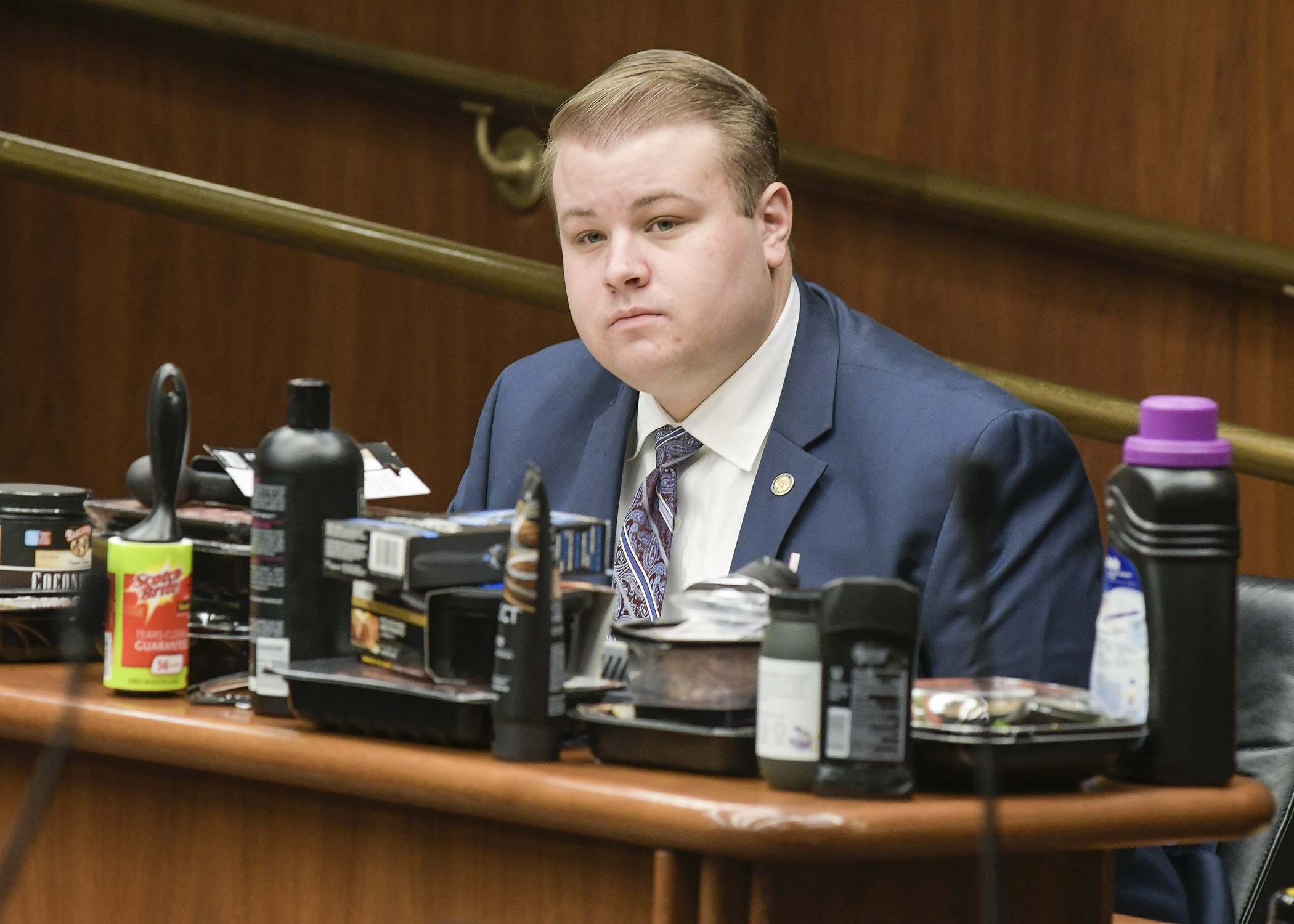State prohibition of local bans on to-go containers heads for House Floor

Minneapolis and St. Louis Park are among the cities that have banned certain types of to-go boxes in an effort to be more environmentally friendly.
A bill sponsored by Rep. Drew Christensen (R-Savage) would prohibit them – and all other cities, towns and counties – from regulating, banning or imposing a fee on “auxiliary containers” from restaurants and retailers.
The House Government Operations and Elections Policy Committee approved HF3606 Wednesday on a 9-8 roll-call vote, with Rep. Randy Jessup (R-Shoreview) being the only Republican voting against the bill. It now heads to the House Floor.
Christensen said the bill would provide statewide uniformity on to-go container regulations and would provide cost savings to consumers. Supporters, including restaurant owners and retailers, said patchwork legislation around the state makes doing business difficult and the cost of eco-friendly containers is a financial burden.
“This is not about taking away regulations in local government. This is about recognizing this is an area of policy that rises to the state level,” said Bruce Nustad, president of the Minnesota Retailers Association. “As retailers, we understand that. We have statewide paint regulation, not city by city. … Some of these things should be reserved for the state level and we would contend this type of regulation is a great statewide issue.”
Dave Cossetta, the owner of Cossetta’s less than a mile from the State Capitol, said ordinances like the one proposed in St. Paul last year “are unfairly targeting the restaurant industry,” noting the proposal would have banned black, recyclable plastic from restaurants even though it can be found throughout grocery stores.
“The black plastic we use is recyclable. At this time there are no cost-effective, comparable compostable materials that work for all our products,” said Cossetta, noting he’d rather spend money on his employees than spending an additional $440,000 on different containers.
Rep. Chris Swedzinkski (R-Ghent) wanted to clarify the bill would not ban individual businesses from moving forward with using eco-friendly packaging.
“This bill provides freedom to business owners to decide what’s best for them and their customers,” Christensen said.
Cities, restaurant owners oppose bill
Opponents of the bill – the cities of Minneapolis and St. Louis Park, restaurant owners, recycling and waste management companies, the League of Minnesota Cities, business owners and the Minnesota Pollution Control Agency – said the bill would take away an important tool cities can use to help them meet the state’s recycling goals and would take away local government rights.
“All communities should have the ability to have the conversation and make the decision locally. Prohibiting the implementation of policies regarding auxiliary containers takes away a potential tool for cities and local governments to properly manage solid waste in our communities and creates a barrier for making the 75 percent recycling goal,” said Emily Barker, a solid waste program manager with the City of St. Louis Park.
A few restaurant owners testified in opposition to the bill, including Andrew Papacosta, owner of Gandhi Mahal in south Minneapolis. He said the upfront costs of buying eco-friendly packaging is higher, but they are falling as more people buy the materials. Papacosta noted his restaurant has benefitted financially from using the containers because people are seeking out his business.
Megan Kuhl-Stennes, associate director of fund and policy development at Eureka Recycling, said cities should be able to respond to the needs of their citizens, adding such regulations are effective at reducing contamination in recycling and composting.
Minneapolis City Councilmember Andrew Johnson said if the city’s ability to keep its ordinance is taken away, recycling contamination will happen, which will increase costs.
“This is a tax on our ratepayers,” Johnson said.
Some opponents suggested that if legislators are worried about patchwork legislation across the state, they could enact legislation regulating auxiliary containers statewide.
The bill’s companion, SF3135, sponsored by Sen. Dan Hall (R-Burnsville), is awaiting action by the Senate Local Government Committee.
Related Articles
Search Session Daily
Advanced Search OptionsPriority Dailies
Stable budget outlook projects $3.7 billion surplus now, no deficit in next biennium
By Lisa Kaczke The projected surplus for Fiscal Years 2026-27 is now higher than it was in the November estimate, and no deficit is projected for the next biennium.
“Minnesota’s budge...
The projected surplus for Fiscal Years 2026-27 is now higher than it was in the November estimate, and no deficit is projected for the next biennium.
“Minnesota’s budge...
Legislative leaders set 2026 committee deadlines
By Lisa Kaczke Legislative leaders on Tuesday officially set the timeline for getting bills through the committee process during the upcoming 2026 session.
Here are the three deadlines for...
Legislative leaders on Tuesday officially set the timeline for getting bills through the committee process during the upcoming 2026 session.
Here are the three deadlines for...